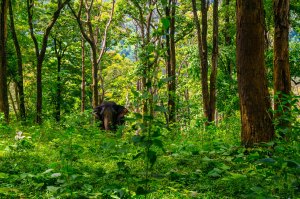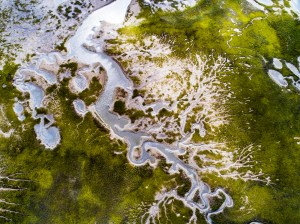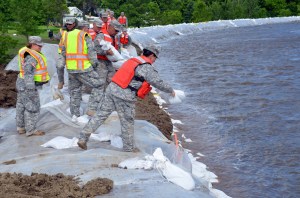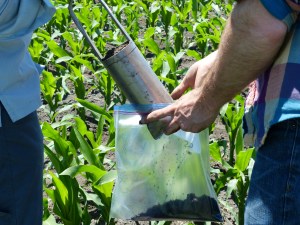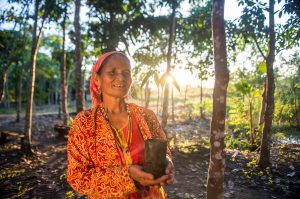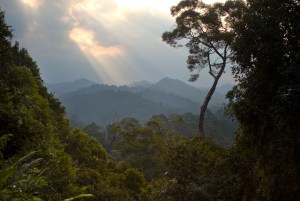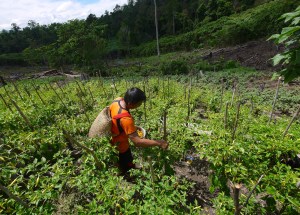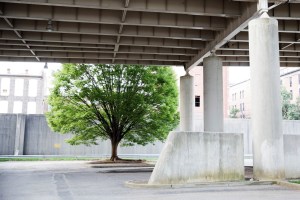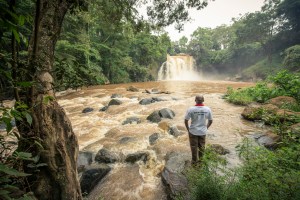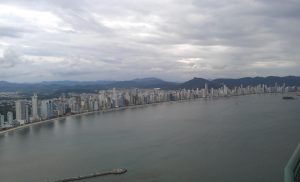Discover stories in Natural Climate Solutions
Co-Benefits for Biodiversity & Carbon in Remnant Forests
New science shows that remnant forests with the greatest tree-species richness also store the most carbon, creating a potential win-win for protecting biodiversity and reducing global carbon emissions.
Tropics Offer Major Natural Climate Solutions Opportunity
New research identifies tropical countries where targeted investment can have the greatest impact on reducing global emissions in the short term.
Biodiverse Forests Capture Carbon Better Than Plantations
New science shows that diverse natural forests with a mix of tree species provide more stable and reliable carbon capture than monoculture plantations in the long run.
Got Floods? Protecting Floodplains Could Be a Cheap Way to Reduce Damages
In many places in the U.S., $1 invested in floodplain protection today can return at least $5 in savings from avoided flood damages in the future.
Soil Carbon: Complexity, Context + A Way Forward
Researchers highlight agreements and uncertainties around soil carbon and argue that “action can happen despite unanswered scientific questions.”
Incorporating Conservation Into Public Health Frameworks
New research incorporates conservation considerations into occupational health and safety frameworks.
Seaweed as Sustainable Livelihood
Seaweed farming can provide livelihoods for rural and indigenous women in Indonesia. How can this aquaculture be practiced sustainably?
How Much Does It Cost to Save Tropical Forests and Prevent Climate Change?
New research directly compares, for the first time, how much carbon dioxide could be removed from the atmosphere by both tropical reforestation and deforestation.
Deforestation Exposes Rural People to Dangerous Heat Stress
Rural Indonesians are changing their behavior as deforestation creates increased local temperatures.
Trees in the US Annually Prevent 1,200 Deaths During Heat Waves
High temperatures are often the greatest weather-related public health threat. Trees can help.
Experimenting with Water Funds + Behavior Change
Can targeted, farm-level recommendations spark adoption at the scale needed to ensure the city of Nairobi a sustainable water supply? TNC scientists are experimenting to find out.
Nature Can Be Cost Effective for Improving Urban Water Supplies
In the first rigorous, peer-reviewed study on water fund Return on Investment (ROI) for cities in Brazil’s Atlantic Forest, TNC […]
